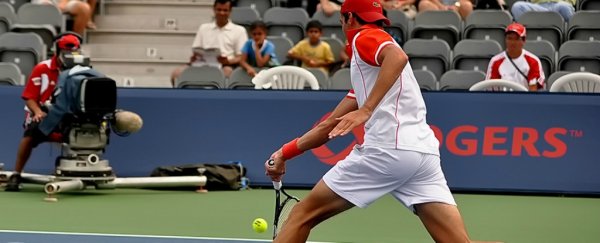Despite the fact that many of us swear by it, researchers have found evidence that 'muscle memory' - the ability for your muscles to remember regular movements even after periods of inactivity - might not actually exist.
While this is bad news for all of us who think we can hop right back on those skateboards we rode as kids and immediately remember how to impress our friends, it's also nice to know that skills can be learned later in life, despite not having any early training.
"It's encouraging for people who haven't trained when they're young, because you don't have a disadvantage," team leader Malene Lindholm, from the Karolinska Institutet in Stockholm, told Tia Ghose at Live Science. "[Y]ou can adapt just as well as people who have trained."
To investigate how long genetic adaptions in muscles stuck around after doing a specific movement, Lindholm's team recruited 23 sedentary individuals and had them kick one leg 60 times a minute for 45 minutes, repeating the exercise four times a week for three months.
Then, after a nine-month break, the participants came back and did the same exercise, but with both legs.
When the exercise was complete, the team took muscle biopsies of each leg, allowing them to see how genetic expression differed between the previously trained leg and the leg that had just started training.
In the end, they found no difference between the participants' legs, leading them to conclude that - despite prior training - muscles didn't 'remember' the movement on a genetic level.
In other words, the common saying "use it or lose it" might actually be accurate when it comes to muscle training.
"As soon as you stop training - especially if you do something as dramatic as breaking a leg, so you stop moving completely - you lose muscle mass and endurance-training effects very quickly," Lindholm told Live Science.
But, as Lindholm explains, nerves inside muscles and memory in our brains can come together to remember certain movements, which is why most of us don't forget how to ride a bike, even if we haven't ridden one in years.
This means that a professional athlete can probably retain high levels of skill for a long period of time, but their muscles can't remember how to produce the force required to perform what the brain is telling the body to do.
Say you used to play tennis as a child. If you were to pick it back up in your late-twenties, your brain would know how to serve properly, but your muscles wouldn't remember the correct way to give you the power you need for it to be successful.
"Your nerves have learned in which order to activate your muscles in order to perform a certain movement," Lindholm told Live Science."If you don't train your muscles won't be able to produce the force necessary to do it, even though your nerves know exactly which order to activate."
The team says that the reason our muscles 'forget' and grow weak with disuse is largely evolutionary. Why, after all, would your body keep muscles at the ready, burning lots of calories in the process, if it didn't need it to?
"It's a cost to keep up really metabolically active muscles or a big muscle mass, and there is no reason for the body to expend energy on that if we don't need to use the muscle," Lindholm said.
In the end, if you want to be athletically skilled, you should probably just practise and keep practising to maintain your skill and fitness level. Otherwise, you might know how to perform a certain movement, but your muscles could end up failing you.
The team's work was published in PLOS Genetics.
